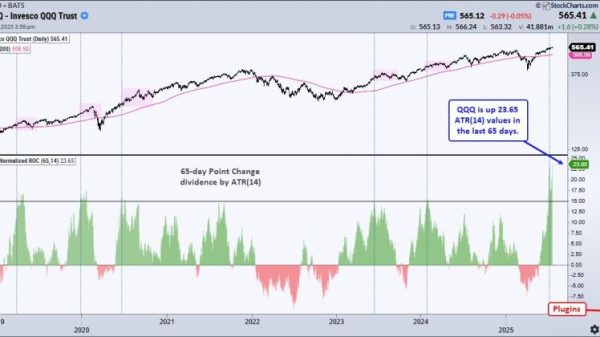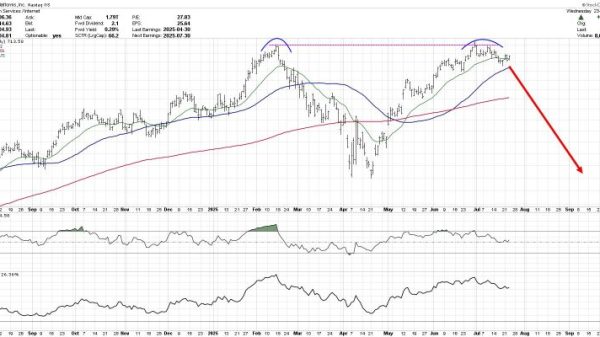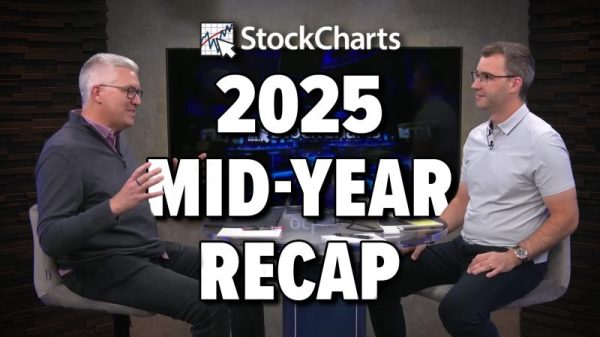Wall Street witnessed a turbulent week as tech stocks took investors on a wild ride that heavily impacted market indices and cryptocurrencies as well, highlighting the continued influence of the sector on the market’s overall performance.
Meanwhile, Ethereum ETFs officially began trading, triggering surprising fluctuations in the price of Ether, and talks between Wiz and Alphabet came to an unexpected halt.
1. Wall Street turns its attention to small-cap stocks, Bank of Canada implements second rate cut
On Monday, the tech industry emerged as a key driver of growth, driven by anticipation surrounding the forthcoming earnings reports of Alphabet (NASDAQ:GOOGL) and Tesla (NASDAQ:TSLA), as well as rumors that Nvidia (NASDAQ:NVDA) plans to release a new line of AI chips for the Chinese market that aligns with US export regulations.
Wall Street’s main indexes had a positive start to the week. The S&P 500 (INDEXSP:.INX) and Nasdaq Composite Index (INDEXNASDAQ:.IXIC) opened trading at 5,544.54 and 17,923.65, respectively, and rose to close the day at 5,564.41 and 18,007.57.
The Toronto Stock Exchange’s S&P/TSX Composite Index (INDEXTSI:OSPTX) also rose Monday, moving from 22,742.56 to 22,872.65.
Tuesday’s open was quieter. The S&P 500 was up slightly at 5,565.30, while the Nasdaq and S&P/TSX were slightly lower at 17,982.74 and 22,834.56. After seeing slight gains across the board during trading, earnings reports reversed part of the day’s gains, as the S&P/TSX composite index ended at 22,816, the Nasdaq Composite dropped to 17,998 and the S&P 500 lost 8.67 points to 5,427.
The indices opened with losses across the board on Wednesday morning as the stock markets responded to Alphabet and Tesla’s lackluster earnings reports. The S&P 500 opened at 5,505.84, a three-week low, and the Nasdaq Composite also saw a significant decline of 1.46 percent, a one-month low. Throughout the day, other major tech stocks pulled back as well, and the declines experienced by Apple (NASDAQ:AAPL), Microsoft (NASDAQ:MSFT), Amazon (NASDAQ:AMZN), Meta Platforms (NASDAQ:META) and Nvidia contributed to a further downward trend in the market indices.
The S&P/TSX Composite Index saw the smallest loss of the three, moving down just 0.8 percent by the end of the day as the Bank of Canada cut interest rates from 4.75 percent to 4.5 percent, its second rate cut in two months.
Another tech sell-off was blamed for the S&P 500 and Nasdaq Composite indices posting their worst one-day performances since late 2022 on Wednesday, with the S&P 500 falling 2.3 percent and the Nasdaq Composite falling 3.64 percent, yet again sparking conversations about the risk of over-stretched AI stocks in the tech sector.
However, stronger-than-anticipated economic growth statistics contributed to a flat opening on Thursday morning. An advanced estimate of the Gross Domestic Product Report showed the US economy expanding by 2.8 percent in the second quarter, showing that inflation is subsiding and boosting expectations of a September rate cut.
The S&P 500 advanced 0.03 percent at the opening bell, and the Nasdaq Composite gained 0.06 percent, but both had moved back down by the end of the day, losing 0.51 and 0.93 percent respectively. Meanwhile, small-cap stocks rose throughout the week again as investors deviated away from the mega-caps as the day progressed.
On Friday, the S&P 500 and Nasdaq Composite took the lead as tech and chip stocks recovered, opening 0.64 percent and 0.87 percent higher. June’s personal consumption expenditure report showed more signs of cooling inflation, leading to advances in the stock market.
Both the S&P and Nasdaq managed to experience gains exceeding 1 percent by the end of the trading Friday, but still posted a weekly loss, marking their second consecutive week of declines. On the other hand, the Russell 2000, which tracks small-cap stocks, displayed its third straight weekly gain, moving up by 3.14 percent.
2. Spot Ether ETFs make their debut
Bitcoin and Ether experienced a rollercoaster of highs and lows as the cryptocurrency market continued to demonstrate volatility in the face of a variety of factors, including US President Joe Biden’s decision to withdraw from the election, earnings reports, tech stock sell-offs, fresh inflation data and the launch of Ether ETFs.
Bitcoin had an optimistic start to the week, climbing to above US$68,000 on Monday, but fell as the day went on, and Ether followed a similar trajectory as it fell below the US$3,500 mark. Tuesday ushered in more fluctuations as Spot Ether ETFs began trading. Ether spiked to US$3,529 in Tuesday’s early morning hours, but pulled back by the end of the day.
Spot Ether ETF inflows exceeded US$360 million in their first 90 minutes of trading and about US$1 billion in volume on their first day of trading, around 22 percent of what Bitcoin ETFs pulled in on their first day. Perfumo predicted Ether ETFs could see between US$750 million and US$1 billion of net inflows per month for the first five to six months.
Bloomberg ETF Analyst James Seyffart noted that the sector debuted with assets under management of US$10.25 billion, 90 percent of which is held in the Grayscale Ethereum Trust. While Ether’s utility is a major appeal to some investors, its characterization as a “bet on blockchain technology” does not resonate with other traders.
Bitcoin and Ether slipped as the day went on on Wednesday and fell further in the evening, moving to the US$64,000 and US$3,200 range respectively, alongside the selloff in tech stocks. Losses were further compounded as Mt. Gox moved US$2.8 billion in Bitcoin to new wallets. Farside Investors recorded outflows of US$45 million from Ether ETFs on their second day of trading.
While both Bitcoin and Ether continued to drop early Thursday, with Ether falling to below US$3,100, they both saw some recovery as the day went on. However, Ether’s recovery, which brought it back above US$3,240, was more muted than Bitcoin’s, which managed to climb back above US$66,000.
As for Friday, both cryptos climbed higher, with Bitcoin’s price trading near US$68,000 and Ether’s rising to around US$3,280. Ultimately, Bitcoin ended the week higher than it started, but Ether was down over 6 percent from Monday.
3. Wiz declines billion-dollar offer from Alphabet
There were a number of developments in the artificial intelligence landscape this week. Canadian AI company Cohere, which develops AI models specifically tailored for business uses, raised US$500 million in a financing round led by the Canadian Public Sector Pension Investment Board. The latest investments brought the company’s valuation to US$5.5 billion, more than double what it was worth in June 2023.
Other big news came when cybersecurity start-up Wiz, rejected Google’s US$23 billion acquisition offer following negotiations, opting instead to carry on with plans of an initial public offering.
Alphabet, the parent company of Google, exceeded expectations when it released its Q2 earnings report, which included a 14 percent year-over-year increase in revenue to US$84.74 billion driven by growth in its search and cloud segments. However, the results failed to impress investors, who sent the stock price down by 4.62 percent after hours.
“The bar was set so high for Alphabet that a modest earnings beat couldn’t push the stock higher. So, the market has no news to buy into,” Kyle Rodda, senior financial market analyst at Capital.com, told the Globe & Mail. “It also speaks to concerns that tech stocks are too richly valued here. We will have to see how the other tech giants report and how the markets react.”
OpenAI’s introduction of an AI-powered search engine on Thursday morning may have contributed to a further 1.71 percent dip in Alphabet’s share price. A few users are testing the prototype, SearchGPT, and effective features will be added to ChatGPT. Interested users can join a waitlist.
Meanwhile, IBM (NYSE:IBM) beat analysts’ estimates for Q2 revenue on Wednesday, boosted by strong demand for its software and AI-linked spending by clients, sending its shares up 5 percent in extended trading. The company reported revenue of US$15.77 billion, compared with analysts’ estimate of US$15.62 billion. The company’s AI Book of Business — a record of bookings and sales across products — grew to exceed US$2 billion.
4. Nvidia reportedly developing AI chips for China, CrowdStrike responds following global crash
On Monday morning, Reuters delivered an exclusive report of a new version of Nvidia’s Blackwell AI chips. The new chips would be bound for China in Q2 2025 and would comply with US export laws. The market reacted with a 1.4 percent increase in share price.
CrowdStrike’s share price continued to fall in the aftermath of last week’s incident, which saw its security update crash computer systems around the world last Friday, opening on Monday morning 13 percent lower from Friday’s close. Meanwhile, CrowdStrike’s (NASDAQ:CRWD) CEO was called to appear before Congress on Monday to explain how the incident happened and the steps the company is taking to mitigate it.
CrowdStrike released a Preliminary Post Incident Review statement on Wednesday, identifying a bug in the Content Validator that allowed problematic data to slip past safety checks and spread to other servers, but did not offer greater details. Estimated financial losses to Fortune 500 companies due to the incident have ranged from US$500 million to US$15 billion.
5. Tesla results disappoint shareholders
Tesla’s Q2 results disappointed investors as its profit margin hitting a five-year low. The automotive gross margin stood at 14.6 percent, falling short of analysts’ estimates of 16.29 percent, as cost reduction efforts were less effective than anticipated. Earnings per share came in at US$0.52, below analysts’ expectations of US$0.62. Net income declined significantly year-over-year from US$2.7 billion to US$1.48 billion.
The disappointing performance of Tesla has been attributed to several factors, notably the overemphasis on AI spending and the implementation of price cuts to drive demand. Tesla has been struggling with low EV sales for the past two quarters and is losing market share to competitors in China.
During Tesla’s quarterly update presentation, CEO Elon Musk expressed confidence in the company’s ability to deliver its Cybertruck and lower-cost EVs in 2025. Tesla’s stock price plunged by 8.63 percent after hours.
In a notable move, Musk launched a poll on his social media platform X seeking users’ opinions on whether the electric carmaker should invest US$5 billion in his AI startup, xAI. Roughly 70 percent of respondents voted in favor of the investment.
Securities Disclosure: I, Meagen Seatter, hold no direct investment interest in any company mentioned in this article.





























